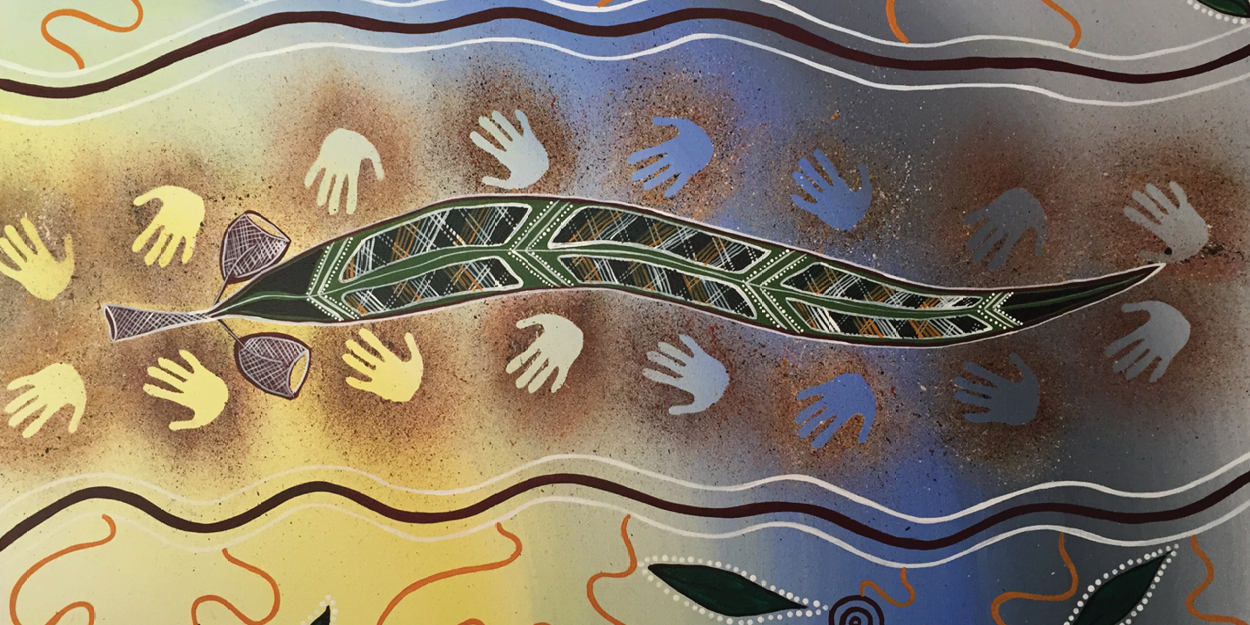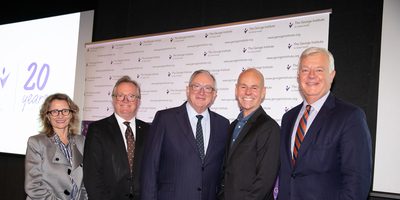
20 years of improving mental health
Originally trained as an epidemiologist, Professor Maree Hackett joined the Institute in 2005, completing her PhD soon after in a field that would remain her focus to this day – the effect of chronic diseases on mental health.
Maree’s first major success at the Institute was with the POISE study in 2008, which recruited 441 people under the age of 65 in Australia who had experienced their first ever stroke.
The five-year study’s key aim was to determine whether psychosocial factors were associated with a return to paid work after one year in younger stroke survivors. Its secondary aim was to determine the economic impact of not returning to work for younger stroke survivors and their families.
"What we successfully highlighted in POISE and my PhD was that depression following a stroke is much more common than many people realised – it affects about a third of all stroke survivors,” Maree explains. “At any one time, one-in-three people will experience depression or related clinical concerns after a stroke, and about 50% of people will experience depression in the first year after an event.”
Like other studies done by the Institute, Maree’s past work has included examining the economic and emotional benefits of an intervention in order to advocate for increasing access to treatment.
“We looked at the impact of cataract surgery in Vietnam beyond just curing blindness, and generated evidence to indicate the household economic benefits to improving eyesight, as well as benefits to mood,” she says.
For Maree, one of the key factors that differentiates the Institute from other organisations working on mental health is its global reach and clear focus on the links between mental health and chronic diseases. She currently leads the Institute’s Australian mental health program, but has carried out successful trials in Sweden and the UK. The George Institute, India’s Deputy Director, Professor Pallab Maulik, is a psychiatrist and is leading a project to integrate mental health screening into the Institute’s SMARThealth app (see page XX).
“We’re also working on a study on emotionalism, which is the tendency to uncontrollably laugh or cry inappropriately after strokes, and strategies for treating depression after a stroke,” she says.
The Australian mental health program has expanded over the years to include mental health challenges facing Aboriginal and Torres Strait Islander people.
“Mental health problems experienced by Aboriginal and Torres Strait Islander people have been overlooked, dismissed and marginalised for too long,” Maree says. “We recently validated a culturally appropriate tool with and for Aboriginal communities and researchers to help us assess and address the scale of mental health problems in communities.”
Dr Anne-Marie Eades, a Noongar woman from Western Australia and a descendant of a Wiilman father and Minang mother, is also working with mothers and children to increase the resilience and strength of Aboriginal women who have experienced some vulnerabilities.
“The aim of her work is to reduce the number of child removals from Aboriginal families and help maintain the wider family unit,” Maree says.
For Maree, the Institute’s biggest contribution to the field of mental health has been the normalisation of mental illness in a chronic disease setting.
“Along with other organisations, we’ve highlighted that depression and anxiety happens after almost every chronic disease, and raised awareness of the consistency of the problem, which is not an excuse to do nothing about it,” she says. “If we can normalise it and say it's slightly unusual if it doesn't happen, then people are more likely to seek help and tell us they’re unwell.”
Despite the progress made, Maree is the first to acknowledge that much more remains to be done in terms of screening, treatment and combating discrimination.
“We need affordable, non-threatening, widely applicable interventions for things like depression that people can access – regardless of their location,” she says. “It can be straightforward enough to diagnose someone with a mood disorder, but there might be no supply of antidepressants or access to talking therapy anywhere near that patient. Or perhaps the patient might not be able to afford that antidepressant or therapy, or not for very long."
“We also need to get rid of the stigma and make sure that when people visit a doctor or other healthcare professional, they can be confident that the healthcare professional knows what to do. We need to make sure they are reassessed if they are prescribed a treatment, so they won't be left on it forever.”
These challenges require the broader education that comes from high-quality research.
“There's still a common misunderstanding between symptoms and diagnosis, and what a diagnosis actually means,” she says. “We all experience symptoms of depression, anxiety, and other disorders - sometimes on a daily or weekly basis. But we're only clinically unwell if the accumulation of those symptoms stops us from being ourselves.”
Celebrating 20 years: Maree’s Top Moments
- New screening tool for Aboriginal and Torres Strait Islanders: “Up until now, we couldn’t reliably ascertain the scale of mental health problems in communities in a culturally appropriate way, which has remained a huge concern. We hope this tool will be a turning point.”
- Mentoring: “I really like helping students navigate the system. I love mentoring them, that's been a constant thing throughout my career because I had some great mentors when I was doing my PhD.”
- From ideas to impact: “Ideas are born, and we take a bizarre concept and work it through to a fundable grant. It’s quite special when you see the outcome from a completed study.”


